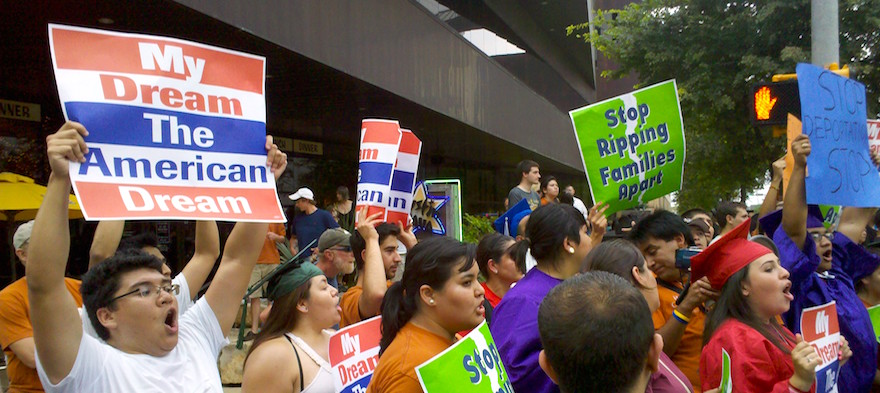
You’ve suffered long hours, layoffs and exposure to dangerous chemicals at work, and received reduced pensions...You haven’t gotten a raise in years, and there is no talk of one. Actually, if you are short a high school diploma, or even a BA, your income has dropped over the last 20 years...You see people cutting in line ahead of you! You’re following the rules. They aren’t.These feelings—this story—make it hard for some to lead with compassion on immigration. Of course, this can be tough for for progressives like me. [pullquote position="right"]The facts on the ground are not accommodating to these angry folks’ feelings.[/pullquote] Immigrants make great community members. They’re net economic assets to their communities. They integrate quickly and succeed in school. Most bring significant skills and education credentials. Immigrants pay billions in U.S. taxes— whether or not they’re here legally. Some U.S. newcomers have broken our immigration laws. Most have not. In many cases, it’s unclear. But there’s no serious debate over whether or not they make the United States better. While there’s no disputing the facts, facts are not the coin of this realm. This is democracy. This is politics. It doesn’t matter if you’re right. Politics runs on embryonic, deeply felt emotions—on hopes and fears. In 2018, those hopes and fears are fueled by a heady mix of authentic gripes, deliberate fearmongering by some of our leaders and carefully crafted media echo chambers.
Conor P. Williams is a fellow at The Century Foundation. Williams was previously the founding director of the New America’s Dual Language Learners National Work Group and a senior researcher in New America's Education Policy Program. He began his career as a first grade teacher in Crown Heights, Brooklyn. Dr. Williams holds a Ph.D in government from Georgetown University, a M.S. in teaching from Pace University, and a B.A. from Bowdoin College. Most importantly, he's a dad.
If you have a child with disabilities, you’re not alone: According to the latest data, over 7 million American schoolchildren — 14% of all students ages 3-21 — are classified as eligible for special...
The fight for educational equity has never been just about schools. The real North Star for this work is providing opportunities for each child to thrive into adulthood. This means that our advocacy...
The story you tell yourself about your own math ability tends to become true. This isn’t some Oprah aphorism about attracting what you want from the universe. Well, I guess it kind of is, but...
Your donations support the voices who challenge decision makers to provide the learning opportunities all children need to thrive.
Ed Post is the flagship website platform of brightbeam, a 501(c3) network of education activists and influencers demanding a better education and a brighter future for every child.
© 2020–2024 brightbeam. All rights reserved.